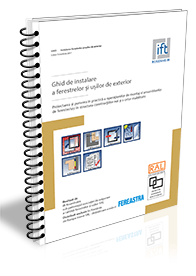| THE TECHNOLOGICAL development of the air conditioning equipment |
| English Section Publicat de Ovidiu Stefanescu 29 Mar 2016 08:33 |
 In all regions of the world where the specific heat of the summer season creates real problems in terms of thermal discomfort, the best solution which was widespread in recent decades, is using individual installations of air conditioning, whose operating parameters shall be established by a thermostat. With the push of a few buttons, an ordinary home user has the ability to completely control the characteristics of temperature and humidity on site. Basically, this system has revolutionized the real estate by demographic point of view, allowing users to comfortably live in regions recognized for adverse climatic conditions in terms of heat. To analyze how it was possible to achieve this objective, is useful to see in which way these technologies have evolved, putting accent on the long-term development prospects. In principle, the air conditioning equipment work on the premise to forcibly eliminate the inside hot air, making this operation by pumping fluid through a network of tubing containing refrigeration substances. These principles are rooted in the habits of middle-class customers in North America, and this assertion is valid also today, because in this region of the world in most properties operate such equipment. Large amount of energy is needed to ensure a proper operation of HVAC systems and this has generated a large number of critics, coming especially from environmentalists, who openly oppose to the extending the use of such solutions, dedicated to improve comfort levels. However, the problem is more complex if consider the much higher volume of resources used for heating operations required during winter. Therefore, the phenomenon is reduced again to a rational balancing OF resource consumption, such as, for example, fossil fuels, which generate by burning, electricity necessary to operate HVAC equipment. However, these are sufficient arguments to attempt a careful analysis of the evolution of the field throughout its existence, exceeding a century. In all regions of the world where the specific heat of the summer season creates real problems in terms of thermal discomfort, the best solution which was widespread in recent decades, is using individual installations of air conditioning, whose operating parameters shall be established by a thermostat. With the push of a few buttons, an ordinary home user has the ability to completely control the characteristics of temperature and humidity on site. Basically, this system has revolutionized the real estate by demographic point of view, allowing users to comfortably live in regions recognized for adverse climatic conditions in terms of heat. To analyze how it was possible to achieve this objective, is useful to see in which way these technologies have evolved, putting accent on the long-term development prospects. In principle, the air conditioning equipment work on the premise to forcibly eliminate the inside hot air, making this operation by pumping fluid through a network of tubing containing refrigeration substances. These principles are rooted in the habits of middle-class customers in North America, and this assertion is valid also today, because in this region of the world in most properties operate such equipment. Large amount of energy is needed to ensure a proper operation of HVAC systems and this has generated a large number of critics, coming especially from environmentalists, who openly oppose to the extending the use of such solutions, dedicated to improve comfort levels. However, the problem is more complex if consider the much higher volume of resources used for heating operations required during winter. Therefore, the phenomenon is reduced again to a rational balancing OF resource consumption, such as, for example, fossil fuels, which generate by burning, electricity necessary to operate HVAC equipment. However, these are sufficient arguments to attempt a careful analysis of the evolution of the field throughout its existence, exceeding a century. |
ABONARE REVISTA (click aici): PROIECTE | INVESTITII | REVISTE | INDEX COMPANII
DATE DE CONTACT: Agenda Constructiilor & Fereastra - Tel/Fax: 021-336.04.16, 031-401.63.88
Stiri & Comunicate
Documente
07 aug 2017
11 oct 2016




















































